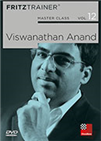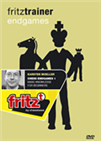"We speak of the rhythm of the battle, the harmony of pieces"
 Within the 45 Success Academy Charter Schools in New York City, elementary school students have chess classes, just like they have music, art, and athletics classes. For some middle school students, chess is an elective. US Chess National Master Jerald Times became Success Academy’s Director of Chess in the spring of 2019.
Within the 45 Success Academy Charter Schools in New York City, elementary school students have chess classes, just like they have music, art, and athletics classes. For some middle school students, chess is an elective. US Chess National Master Jerald Times became Success Academy’s Director of Chess in the spring of 2019.
Due to the coronavirus pandemic, on March 19, Success Academy switched from in-person instruction to remote learning. While working from his home in Harlem, Times helps Success Academy’s chess coaches implement online instruction and tournaments. He is also updating the chess curriculum.
Times has run holistic chess programs that included storytelling, music, tai chi and chess. After being trained in Times’ past holistic chess programs, several schools won national scholastic chess championships. In this interview, Alexey Root (AR) asks Jerald Times (JT) about life in New York City during the pandemic, his holistic approach to chess and how that approach created national champions.
 This DVD allows you to learn from the example of one of the best players in the history of chess and from the explanations of the authors how to successfully organise your games strategically, and how to keep your opponent permanently under pressure.
This DVD allows you to learn from the example of one of the best players in the history of chess and from the explanations of the authors how to successfully organise your games strategically, and how to keep your opponent permanently under pressure.AR: What steps has Success Academy taken during the pandemic?
JT: Our first commitment was to the safety of the community. We closed our schools and sent Network employees home to work remotely. Our second commitment was to the education of the scholars — providing them the tools they need to learn from home, ranging from enforcing student work habits to technology that supports online learning. In addition to a robust Academic curriculum, Success Academy values whole child development through our Experiential Learning curriculum. Chess is part of Experiential Learning, which includes sports, field studies, visual arts, debate, theater, music and dance. All of these teachers contributed to the implementation of remote learning. Only after these first two commitments were secured was I asked to develop a remote learning model for chess.
AR: What is your state of mind during the coronavirus pandemic?
JT: New York is the epicenter of the coronavirus pandemic. We are one state out of fifty but we have 31 percent of all contracted COVID-19 cases nationwide and we are 35 percent of all deaths in the United States. As the curve of contraction continues to peak, every two minutes someone dies in New York from COVID-19. I have lost friends, including chess player Beejay Hicks, and several loved ones have been hospitalized. My state of mind varies as some days are bleak, but most days are hopeful.
AR: How does chess affect the mental health of those ordered to stay at home?
JT: Chess develops emotional intelligence because over the course of the struggle you must adapt to the problems presented to you at the board. Chess is not just a cognitive process — chess develops one’s grit, stamina, and improvisational skills. As shelter-in-place orders are being instituted worldwide, I believe that chess can be a remedy for keeping one’s sanity in difficult times. Over-the-board (OTB) chess has now been swapped for online chess. Many of the chess apps include programs for self-paced learning as well as online tournaments. So a chess player is never really isolated even while at home, as they can play the whole world from their phone or computer.
AR: Tell why you chose chess, storytelling, music and tai chi as subject areas for your holistic chess programs.
JT: I adapted these additional practices because I wanted to accelerate the learning curve of the budding chess player. Chess should also be about the development of the whole child. In the early days of the program, I was supported by the philanthropy of Daniel Rose, and a few years later Stanley Druckenmiller. Their funding allowed me to bring in talented teachers of these other subjects to our scholastic chess community.
These holistic practices were also initiated based on the needs of the children. Tai chi was introduced to increase the stamina of the competitor. Storytelling was ushered in because we saw the chess game as a narrative and it was important that the scholars identified the turning points in their own games. Finally, we begin to incorporate music, as music has the power to uplift. Music is rhythm, melody and harmony. In chess, we speak of the rhythm of the battle, the harmony of pieces, and the most beautiful games play like melodies.

US National Master Jerald Times | Photo: Success Academy Charter Schools
 Endgame theory constitutes the foundation of chess. You realize this in striking clarity once you obtain a won endgame but in the end have to be content with a draw in the end because of a lack of necessary know-how. Such accidents can only be prevented by building up a solid endgame technique. This is Karsten Müller‘s fi rst DVD and the grandmaster from Hamburg and endgame expert, here lays the foundation for acquiring such a technique. The fi rst part of his training series can be started without any endgame knowledge, only a knowledge of the rules of chess is assumed.
Endgame theory constitutes the foundation of chess. You realize this in striking clarity once you obtain a won endgame but in the end have to be content with a draw in the end because of a lack of necessary know-how. Such accidents can only be prevented by building up a solid endgame technique. This is Karsten Müller‘s fi rst DVD and the grandmaster from Hamburg and endgame expert, here lays the foundation for acquiring such a technique. The fi rst part of his training series can be started without any endgame knowledge, only a knowledge of the rules of chess is assumed.AR: How did this holistic approach affect students? Did students trained in this way improve their chess ratings too?
JT: In the years of these holistic chess programs, the students won several city, state and national championships. Tai chi is not just about fitness, it’s also about wellness. As the scholars evolved in their tai chi practices, you could see the physical transformation of their bodies. Tai Chi practice deals with poetic archetypes. Our students became as graceful as the crane, as tenacious as the tiger, and as shift-shaping as the dragon. When our scholars sat at the board they had confidence and character internalized in their body language — that internalized body language and stamina developed from the tai chi forms led them to many victories.
Music practice included songs, and the songs incorporated mantras. Mantras had positive messaging. One such song was Donnie McClurkin’s "We Fall Down". The song continues…we fall down but we get up. The message is really simple as chess pieces fall down, but they get back up again. Our young people are asked, after their losses, to get back up again. That mantra addresses their spirits.
Finally, storytelling is about developing the self-awareness of the child. As a chess teacher, you have a choice between correcting a scholar’s move or correcting a scholar’s thinking. Games are lost not only because of moves but because of mindsets. In storytelling, a mirror is held to the scholar’s thinking and they must ask themselves in the course of the struggle about their level of patience — were they dismissive of an opponent’s moves, were they too optimistic and, finally, could they identify the turning points where the game was won and lost?
AR: What are your plans for fall 2020 and beyond?
 JT: I am updating the chess curriculum for Success Academy, which includes content, a scope and sequence, and assessment tools. The digital part of our curriculum is going to be stored on ChessBase. I think ChessBase has great potential as a scholastic tool in helping chess teachers everywhere write a curriculum. Being the director of one of the largest chess bodies in America in regards to teaching students and hiring chess teachers, I would like to work with ChessBase to develop a teacher’s edition of their famous software.
JT: I am updating the chess curriculum for Success Academy, which includes content, a scope and sequence, and assessment tools. The digital part of our curriculum is going to be stored on ChessBase. I think ChessBase has great potential as a scholastic tool in helping chess teachers everywhere write a curriculum. Being the director of one of the largest chess bodies in America in regards to teaching students and hiring chess teachers, I would like to work with ChessBase to develop a teacher’s edition of their famous software.
Now the question of the day is about online chess: can these games be rated the same as OTB chess? Until a vaccine is created, our challenge will be on how to continue competitive chess games. I think there must be a discussion with worldwide chess authorities about the potential of multi-site chess tournaments and about our ability to adapt to these present times with creative solutions in the age of a pandemic.
Jerald chose these two games to share with ChessBase readers. In the first one, he ends the game with a fine series of pins, while in the second he punishes white for leaving his king undefended.

Links


















 Within the 45 Success Academy Charter Schools in New York City, elementary school students have chess classes, just like they have music, art, and athletics classes. For some middle school students, chess is an elective. US Chess National Master Jerald Times became
Within the 45 Success Academy Charter Schools in New York City, elementary school students have chess classes, just like they have music, art, and athletics classes. For some middle school students, chess is an elective. US Chess National Master Jerald Times became 




